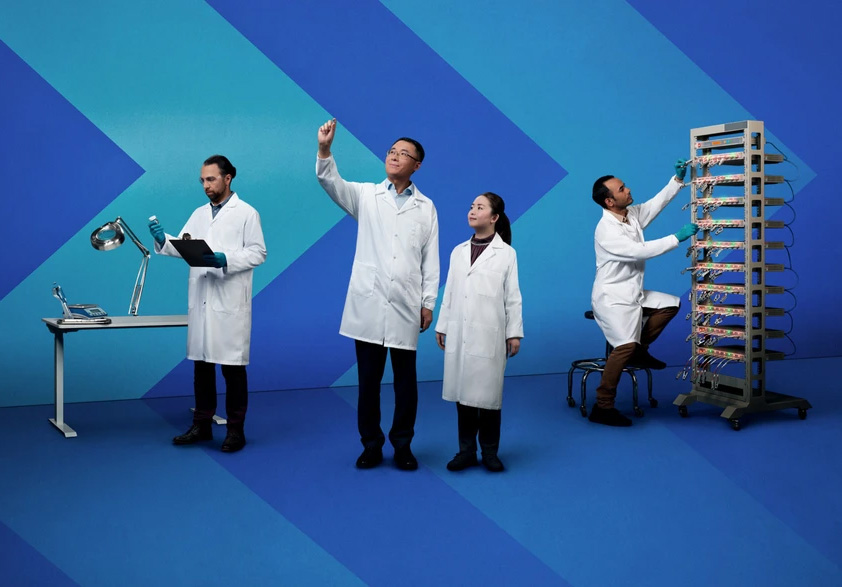
UBC’s Dr. Jian Liu and his team are developing safer, more powerful batteries for electric cars, solar panels and more—and building a western Canadian supply chain to ensure renewable energy security
Many of us are feeling the pinch of rising gas prices. But few of us ever think about the price of lithium, which helps power batteries in everything from laptops to electric cars. The element touches our lives in more ways than we might realize—and it’s become precious and expensive.
“Lithium is considered ‘white oil’ right now,” says Dr. Jian Liu, an associate professor with UBC Okanagan’s School of Engineering. A key material in today’s rechargeable lithium-ion batteries, the element is in short supply and high demand.
The demand for lithium-ion batteries is expected to grow exponentially over the next few decades. That’s one of the reasons Dr. Liu and his team are working on building the next generation of batteries.
Batteries can help us transition to renewable energy, a key to fighting climate change. But we need safer batteries that last longer, cost less and can be recycled efficiently to reduce our dependence on fossil fuels. And we need access to the raw materials that go into making these batteries to keep our clean-energy systems humming.
Batteries store chemical energy that is converted into electrical energy. As we transition to renewable energy, we need better batteries to harness electric, solar and wind power. While solar panels on your roof can power your home during the day, storing that energy in an efficient battery could help heat your home all night. While the average electric car can go about 300 kilometres on one battery charge, Dr. Liu’s team aims to extend that to beyond 500 kilometres per charge—comparable to one tank of gas.
Read the full article on Beyond.
Through Strategy 10: Research Culture, UBC is working to develop the principles and practices that define a collaborative and inclusive research culture and that support mentorship, scholarship, discovery and creativity.